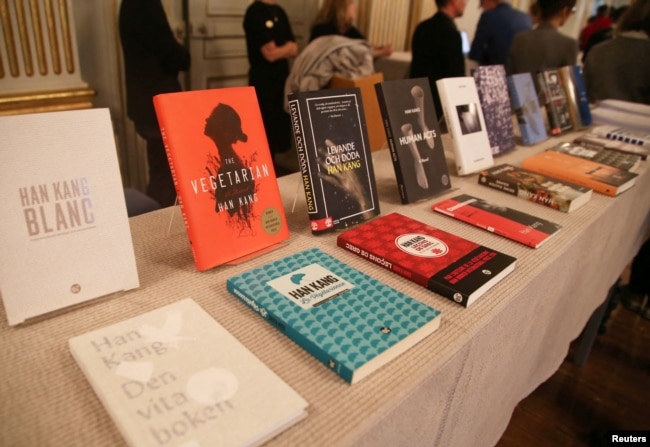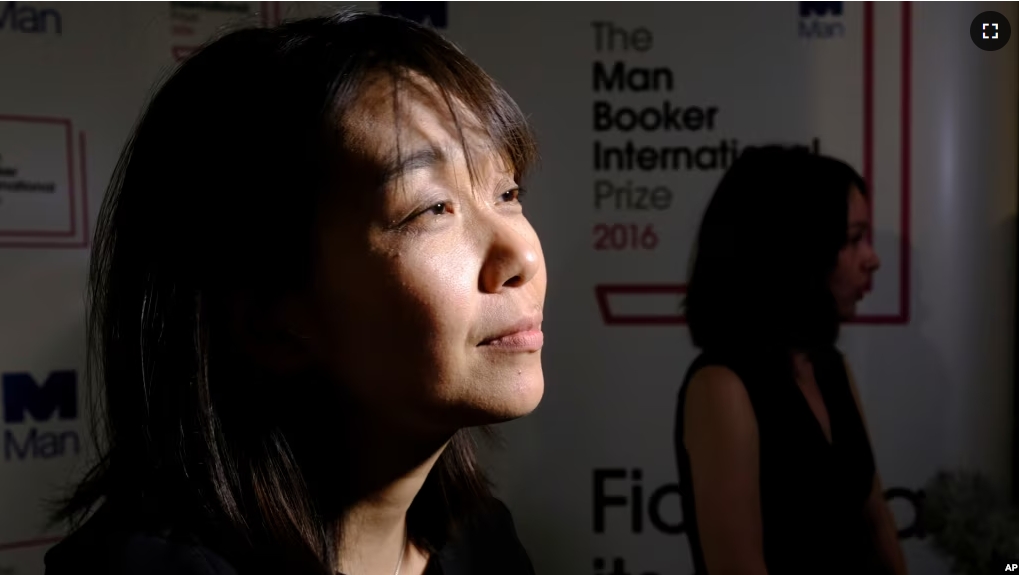South Korean writer Han Kang won the 2024 Nobel Prize in Literature on Thursday. The Swedish Academy’s Nobel Committee said her work “confronts historical traumas and exposes the fragility of human life.”
Born in 1970, Han Kang is the first South Korean to win the literature prize. Kang began her career in 1993 with the publication of several poems in Literature and Society. She published her first story in 1995 with Love of Yeosu.
In 2016, Kang won the Man Booker International Prize for The Vegetarian. It tells the story of a woman’s decision to stop eating meat and her family’s worry about her mental health. The novel was the first of her books to be translated into English and was seen as her major international breakthrough.
In a talk with the Booker Prizes, published last year, Kang said the book was written during a difficult period in her life. She questioned whether she could finish the story or even survive as a writer.
“I was suffering from severe arthritis…To this day, I feel awkward when I hear about the novel’s ‘success,’” she said.
In the novel Human Acts, Kang explored the 1980 killing of hundreds of students and unarmed civilians by the South Korean military in the city of Gwangju, where she grew up.
“In seeking to give voice to the victims of history, the book confronts this episode with brutal actualization and, in so doing, approaches the genre of witness literature,” the Academy said.

One of two South Korean Nobel winners
Kang is the second South Korean to win a Nobel Prize. Former South Korean President Kim Dae-jung received the Nobel Peace Prize in 2000 for his efforts to restore democracy in the South and improve relations with North Korea.
The literature prize has long faced criticism that it is too centered on European and North American writings. It has also been awarded mainly to male writers. Kang is only the 18th woman to receive the award among more than 100 winners.
Past winners of the prize include well-known writers like Irish poet W.B. Yeats, American writer Ernest Hemingway and Colombia’s Gabriel Garcia Marquez. In 2016, American singer Bob Dylan also received the prize “for having created new poetic expressions within the great American song tradition”
Mats Malm is Permanent Secretary of the Swedish Academy. He told reporters, “I was able to talk to Han Kang over the phone. She was having an ordinary day, it seems, she had just finished supper with her son.”
The prize comes with a money award of $1.1 million.
I’m Mario J. Ritter, Jr.
Jill Robbins adapted the story for Learning English based on reports from Reuters and The Associated Press.
______________________________________________
Words in This Story
trauma – n. a very difficult or unpleasant experience that causes someone to have mental or emotional problems usually for a long time
fragile – adj. easily broken or damaged
novel – n. a long written story usually about imaginary characters and events
arthritis – n. a disease that causes the joints of the body to become swollen and painful
brutal – adj. very direct and accurate in a way that is harsh or unpleasant
genre – n. a particular type or category of literature or art
supper – n. the evening meal — used especially to refer to an informal meal that you eat at home
